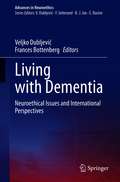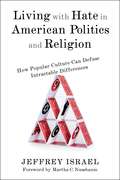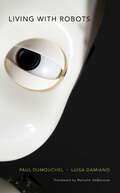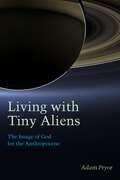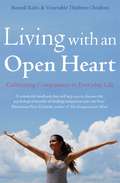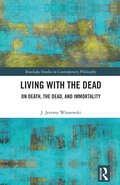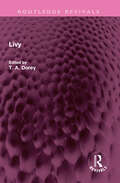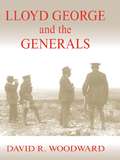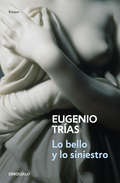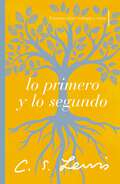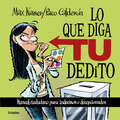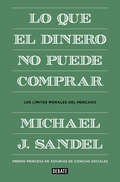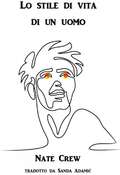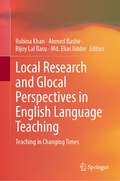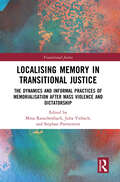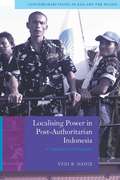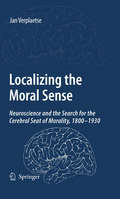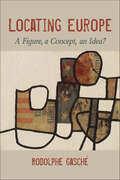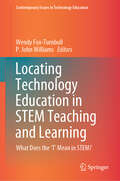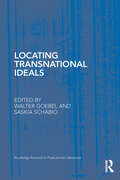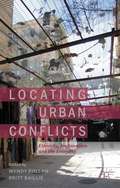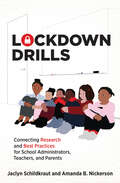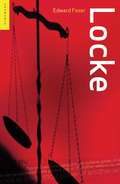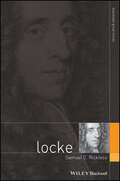- Table View
- List View
Living with Dementia: Neuroethical Issues and International Perspectives (Advances in Neuroethics)
by Veljko Dubljević Frances BottenbergThis book addresses current issues in the neuroscience and ethics of dementia care, including philosophical as well as ethical legal, and social issues (ELSIs), issues in clinical, institutional, and private care-giving, and international perspectives on dementia and care innovations. As such, it is a must-read for anyone interested in a well-researched, thought-provoking overview of current issues in dementia diagnosis, care, and social and legal policy. All contributions reflect the latest neuroscientific research on dementia, either broadly construed or in terms of the etiologies and symptoms of particular forms of dementia. Given its interdisciplinary and international scope, its depth of research, and its qualitative emphasis, the book represents a valuable addition to the available literature on neuroethics, gerontology, and neuroscientific memory research.
Living with Hate in American Politics and Religion: How Popular Culture Can Defuse Intractable Differences
by Jeffrey IsraelIn the United States, people are deeply divided along lines of race, class, political party, gender, sexuality, and religion. Many believe that historical grievances must eventually be left behind in the interest of progress toward a more just and unified society. But too much in American history is unforgivable and cannot be forgotten. How then can we imagine a way to live together that does not expect people to let go of their entrenched resentments?Living with Hate in American Politics and Religion offers an innovative argument for the power of playfulness in popular culture to make our capacity for coexistence imaginable. Jeffrey Israel explores how people from different backgrounds can pursue justice together, even as they play with their divisive grudges, prejudices, and desires in their cultural lives. Israel calls on us to distinguish between what belongs in a raucous “domain of play” and what belongs in the domain of the political. He builds on the thought of John Rawls and Martha Nussbaum to defend the liberal tradition against challenges posed by Frantz Fanon from the left and Leo Strauss from the right. In provocative readings of Lenny Bruce’s stand-up comedy, Philip Roth’s Portnoy’s Complaint, and Norman Lear’s All in the Family, Israel argues that postwar Jewish American popular culture offers potent and fruitful examples of playing with fraught emotions. Living with Hate in American Politics and Religion is a powerful vision of what it means to live with others without forgiving or forgetting.
Living with Robots
by Paul Dumouchel Luisa DamianoFrom artificial intelligence to artificial empathy, “a timely and well-written volume that addresses many contemporary and future moral questions” (Library Journal).Today’s robots engage with human beings in socially meaningful ways, as therapists, trainers, mediators, caregivers, and companions. Social robotics is grounded in artificial intelligence, but the field’s most probing questions explore the nature of the very real human emotions that social robots are designed to emulate.Social roboticists conduct their inquiries out of necessity—every robot they design incorporates and tests a number of hypotheses about human relationships. Paul Dumouchel and Luisa Damiano show that as roboticists become adept at programming artificial empathy into their creations, they are abandoning the conventional conception of human emotions as discrete, private, internal experiences. Rather, they are reconceiving emotions as a continuum between two actors who coordinate their affective behavior in real time. Rethinking the role of sociability in emotion has also led the field of social robotics to interrogate a number of human ethical assumptions, and to formulate a crucial political insight: there are simply no universal human characteristics for social robots to emulate. What we have instead is a plurality of actors, human and nonhuman, in noninterchangeable relationships.Foreshadowing an inflection point in human evolution, Living with Robots shows that for social robots to be effective, they must be attentive to human uniqueness and exercise a degree of social autonomy. More than mere automatons, they must become social actors, capable of modifying the rules that govern their interplay with humans.“A detailed tour of the philosophy of artificial intelligence (AI)?especially as it applies to robots intended to build social relationships with humanity. . . . If we are to build a robust, appropriate ethical structure around the next generation of technical development?some combination of deep learning, artificial intelligence, robotics and artificial empathy?we need to understand that managing the impact of these technologies is far too important to be left to those who are enthusiastically engaged in producing them.” —Times Higher Education
Living with Tiny Aliens: The Image of God for the Anthropocene (Groundworks: Ecological Issues in Philosophy and Theology)
by Adam PryorAstrobiology is changing how we understand meaningful human existence. Living with Tiny Aliens seeks to imagine how an individuals’ meaningful existence persists when we are planetary creatures situated in deep time—not only on a blue planet burgeoning with life, but in a cosmos pregnant with living-possibilities. In doing so, it works to articulate an astrobiological humanities.Working with a series of specific examples drawn from the study of extraterrestrial life, doctrinal reflection on the imago Dei, and reflections on the Anthropocene, Pryor reframes how human beings meaningfully dwell in the world and belong to it. To take seriously the geological significance of human agency is to understand the Earth as not only a living planet but an artful one. Consequently, Pryor reframes the imago Dei, rendering it a planetary system that opens up new possibilities for the flourishing of all creation by fostering technobiogeochemical cycles not subject to runaway, positive feedback. Such an account ensures the imago Dei is not something any one of us possesses, but that it is a symbol for what we live into together as a species in intra-action with the wider habitable environment.
Living with an Open Heart: How to Cultivate Compassion in Everyday Life
by Thubten Chodron Russell KoltsLiving with an Open Heart contains brief readings which blend Buddhist and western psychology. It thoughtfully presents ideas and techniques drawn from Buddhism, western psychological approaches, as well as the authors' personal experiences in working to develop compassion in their own lives and in their work with others. Designed to be easy to dip into, this fascinating book is organised into brief chapters to include discussions, reflections and contemplations, personal stories, and specific techniques for deepening compassion. Each chapter provides fuel for thought and contemplation as the reader goes through his or her day, inspiring their motivation to be compassionate, helping them to understand compassion, and giving them specific methods for applying it in their lives.
Living with the Dead: On Death, the Dead, and Immortality (Routledge Studies in Contemporary Philosophy)
by J. Jeremy WisnewskiThis book explores the moral place of the dead in our lives and in our afterlives. It argues that our lives are saturated by the past intentions and values of the dead, and that we offer the dead a form of modest immortality by fulfilling our obligations to remember them. In the first part of the book, the author examines the scope and limits of our obligations to the dead. Our obligations to respect the wishes of the dead are more substantial than commonly acknowledged, but they can be overridden in a range of cases when they conflict with the vital interests of the living, such as in organ donation and wealth inheritance. By contrast, the author contends that the obligation to remember, at least collectively, cannot be completely overridden. In the second part of the book, the author argues that tradition offers the dead a form of modest immortality—the dead live on insofar as we enact those intentional states with which they most identified. He draws on the Confucian view of ritual to argue that ritual absorption "reincarnates" the dead in the actions of the living. Finally, the author defends a Jamesian account of a pluralistic self that is consistent with the view that we have obligations to the individual dead and that the selves of the dead are pragmatic constructions. Living with the Dead will appeal to scholars and students interested in the philosophy of death, ethics, and cross-cultural philosophy.
Livy (Routledge Revivals)
by Kenneth QuinnFirst published in 1971, Livy is a collection of essays that deals with Livy’s work and its influence on the scholarship of Western Europe. The monumental nature of Livy’s History makes it a source of material for all those interested in the means by which Rome grew into an Imperial power and in the institutions that made her great. Later generations have also sought in Livy’s pages for some magic formula that they could apply to the management of their own cities. The volume includes three chapters on the surviving portions of Livy, one on the history of Livian scholarship in Germany, and – commemorating the Machiavelli quincentenary – one on Livy and Machiavelli. There are also chapters on Livy’s influence on Montesquieu, on the use made of Livy by Macaulay, and on the Florentine Manuscripts of Livy which were such prized possessions in the sixteenth century. This book will be of interest to students of classical literature, history and philosophy.
Livy’s Political Philosophy
by Ann VasalyThis volume explores the political implications of the first five books of Livy's celebrated history of Rome, challenging the common perception of the author as an apolitical moralist. Ann Vasaly argues that Livy intended to convey through the narration of particular events crucial lessons about the interaction of power and personality, including the personality of the Roman people as a whole. These lessons demonstrate the means by which the Roman republic flourished in the distant past and by which it might be revived in Livy's own corrupt time. Written at the precise moment when Augustus' imperial autocracy was replacing the republican system that had existed in Rome for almost 500 years, the stories of the first pentad offer invaluable insight into how republics and monarchies work. Vasaly's innovative study furthers the integration in recent scholarship of the literary brilliance of Livy's text and the seriousness of its purpose.
Lloyd George and the Generals (Military History and Policy)
by David R. WoodwardThe frustrating stalemate on the western front with its unprecedented casualties provoked a furious debate in London between the civil and military authorities over the best way to defeat Germany. The passions aroused continued to the present day. The mercurial and dynamic David Lloyd George stood at the centre of this controversy throughout the war. His intervention in military questions and determination to redirect strategy put him at odds with the leading soldiers and admirals of his day.Professor Woodward, a student of the Great War for some four decades, explores the at times Byzantine atmosphere at Whitehall by exhaustive archival research in official and private papers. The focus is on Lloyd George and his adversaries such as Lord Kitchener, General Sir William Robertson, and Field Marshall Sir Douglas Haig. The result is a fresh, compelling and detailed account of the interaction between civil and military authorities in total war.
Lo bello y lo siniestro
by Eugenio TríasUna obra clave para comprender la historia de las ideas estéticas y de la teoría del arte. Publicado por primera vez en 1982 y merecedor del Premio Nacional de Ensayo en 1983, Lo bello y lo siniestro es un texto imprescindible para comprender la historia de las ideas estéticas y de la teoría del arte. Mediante el análisis de obras diversas -desde las pinturas renacentistas de Sandro Botticelli hasta la célebre película Vertigo de Alfred Hitchcock- el genial filósofo valora la evolución histórica de dos categorías estéticas opuestas, lo bello y lo siniestro, para descubrir lo que ambas tienen de sublime. Eugenio Trías persigue y consigue incansablemente para ofrecer al lector uno de los ensayos más descollantes de nuestro tiempo. Esta nueva edición de Lo bello y lo siniestro ha sido revisada y actualizada por su autor y analizada, en un magnífico prólogo, por Vicente Verdú. La crítica ha dicho...«Ha sido esa ruta vital en pos de hallar una solución al problema de la verdad, la que ha situado a Trías en la vanguardia del último pensamiento europeo.»El Mundo «Eugenio Trías se acercó a la perfección formal y filosófica en estas páginas.»Rafael Narbona, El Cultural de El Mundo
Lo primero y lo segundo: Ensayos sobre teología y ética
by C. S. LewisEsta brillante colección de las obras de C. S. Lewis sacudirá toda tu visión de la historia, el trabajo, la oración, el amor y la vida misma desde un nuevo patrón; siendo uno de los escritores cristianos más influyentes del siglo XX C. S Lewis conducirá tu mente en una suave pero irresistible travesía sobre de la verdad.Descubre esta vibrante recopilación de ensayos sobre la vida del ser humano y la apologética cristina en contra de las corrientes de teologías modernistas. Un resultado de diversas publicaciones a lo largo del tiempo y en distintas obras del autor, esta lectura llevará tu mundo a pensar en algunas de las cuestiones más desafiantes para el individuo y la sociedad de forma fresca y cautivadora.First and Second ThingsThis brilliant collection of the works of C. S. Lewis will shake your whole view of history, work, prayer, love, and life itself into a new pattern; as one of the most influential Christian writers of the 20th century, C. S Lewis will lead your mind on a gentle but compelling journey through the truth.Discover this vibrant collection of essays on the life of the human being and Christian apologetics against the currents of modernist theologies. A result of various publications over time and in different works by the author, this reading will lead your world to think about some of the most challenging questions for the individual and society in a fresh and captivating way.
Lo que diga tu dedito
by Max Kaiser Paco CalderónManual ciudadano para indecisos o decepcionados Este no es un libro de texto ni un aburrido análisis de la terrible realidad: es un instrumento de batalla. 30 conceptos esenciales que todo ciudadano debe conocer, entender y dominar 1 historia de cómo llegamos aquí 150 argumentos sencillos y contundentes para convertirte en ese dolor de cabeza de los ignorantes ¡Y todos debidamente ilustrados por 65 cartones de Calderón!
Lo que el dinero no puede comprar: Los límites morales del mercado
by Michael J. SandelUn extraordinario ensayo que nos muestra cuál es el papel adecuado de los mercados en una sociedad. PREMIO PRINCESA DE ASTURIAS DE CIENCIAS SOCIALES 2018 ¿Deberíamos pagar a los niños para que lean libros o saquen buenas notas? ¿Deberíamos permitir que las empresas compren el derecho a contaminar el medio ambiente? ¿Es ético pagar a gente para probar nuevos medicamentos peligrosos o para donar sus órganos? ¿Y contratar mercenarios que luchen por nosotros? ¿O vender la ciudadanía a los inmigrantes que quieran pagar? En Lo que el dinero no puede comprar, Michael J. Sandel se plantea una de las mayores cuestiones éticas de nuestro tiempo: ¿hay algo malo en que todo esté a la venta? Si es así, ¿cómo podemos impedir que los valores del mercado alcancen esferas de la sociedad donde no deben estar? ¿Cuáles son los límites morales del mercado? En las últimas décadas, los valores del mercado han expulsado a las demás normas en casi todos los aspectos de la vida cotidiana - medicina, educación, gobierno, ley, arte, deporte, incluso la vida familiar y las relaciones personales. Sin darnos cuenta, dice Sandel, hemos pasado de tener una economía de mercado a ser una sociedad de mercado. ¿Es eso lo que queremos ser? Si en su extraordinario libro Justicia Sandel demostró su maestría a la hora de explicar con claridad y vigor las duras cuestiones morales que afrontamos en el día a día, en este nuevo libro provoca una discusión esencial que en esta era dominada por el mercado necesitamos tener: cuál es el papel adecuado de los mercados en una sociedad democrática y cómo podemos proteger los bienes morales y cívicos que los mercados ignoran y que el dinero no puede comprar. Reseñas:«Es la persona adecuada para advertirnos sobre el daño moral que los mercados han infligido a nuestros valores. Un libro muy importante.»The Wall Street Journal «Afortunadamente, hay cosas que el dinero no puede comprar. O, mejor dicho, que no debería poder comprar. Pero desgraciadamente, no siempre es así. De ahí la importancia de este libro. Les ayudará a afinar sus instintos sociales y a distinguir entre una economía de mercado y una sociedad de mercado... Que lo disfruten.»José Ignacio Torreblanca, El País «Sandel es un crítico tan benévolo que simplemente nos pide abrir los ojos [...] Lo que el dinero no puede comprar nos muestra la profunda necesidad de un cambio en la sociedad.»The Wall Street Journal «El profesor de filosofía más famoso del mundo nos ha vuelto a demostrar que es posible hablar de filosofía en la esfera pública sin insultar la inteligencia del público. Sandel está intentado incorporar al debate social el discurso de la virtud cívica abandonado tanto por la izquierda como por la derecha.»Michael Ignatieff «Un libro importante [...] Michael Sandel es la persona adecuada para diseccionar el enredo moral de los mercados en detrimento de nuestros valores.»The New York Review of Books
Lo stile di vita di un uomo
by Nate CrewQuesto libro è un codice esplicito di un individualista. Non si tratta di una nuova filosofia, ma di un manuale chiaro e praticabile per un modo di pensare e agire utile all'uomo. Nove semplici regole empiriche che sono un riassunto di principi basilari legati all’etica, all’autodeterminazione e al modo su come ottener il massimo della vita. Originalmente è stato scritto per il figlio dell’autore, per la sua solidità e validità, questo manuale è diventato una risorsa per chiunque che necessita dei valori razionali a cui attenersi.
Local Research and Glocal Perspectives in English Language Teaching: Teaching in Changing Times
by Rubina Khan Ahmed Bashir Bijoy Lal Basu Md. Elias UddinThis book provides an overview of recent trends and developments in the field of English language education. It showcases research endeavors from a heterogenous group of scholars from different parts of the world and brings together perspectives from both experienced and emerging scholars. This book provides a platform for established as well as emerging practitioners and scholars in the field of English Language Teaching to share their research. It synthesizes local expertise and culture with innovative ideas from other contexts and brings theory and practice together in one volume.
Localising Memory in Transitional Justice: The Dynamics and Informal Practices of Memorialisation after Mass Violence and Dictatorship
by Mina Rauschenbach, Julia Viebach, and Stephan ParmentierThis collection adds to the critical transitional justice scholarship that calls for “transitional justice from below” and that makes visible the complex and oftentimes troubled entanglements between justice endeavours, locality, and memory-making. Broadening this perspective, it explores informal memory practices across various contexts with a focus on their individual and collective dynamics and their intersections, reaching also beyond a conceptualisation of memory as mere symbolic reparation and politics of memory. It seeks to highlight the hidden, unwritten, and multifaceted in today’s memory boom by focusing on the memorialisation practices of communities, activists, families, and survivors. Organising its analytical focal point around the localisation of memory, it offers valuable and new insights on how and under what conditions localised memory practices may contribute to recognition and social transformation, as well as how they may at best be inclusive, or exclusive, of dynamic and diverse memories. Drawing on inter- and multi-disciplinary approaches, this book brings an in-depth and nuanced understanding of local memory practices and the dynamics attached to these in transitional justice contexts. It will be of much interest to students and scholars of memory and genocide studies, peace and conflict studies, transitional justice, sociology, and anthropology.
Localising Power in Post-Authoritarian Indonesia
by Vedi HadizThis book is about how the design of institutional change results in unintended consequences. Many post-authoritarian societies have adopted decentralization-effectively localizing power-as part and parcel of democratization, but also in their efforts to entrench "good governance. " Vedi Hadiz shifts the attention to the accompanying tensions and contradictions that define the terms under which the localization of power actually takes place. In the process, he develops a compelling analysis that ties social and institutional change to the outcomes of social conflict in local arenas of power. Using the case of Indonesia, and comparing it with Thailand and the Philippines, Hadiz seeks to understand the seeming puzzle of how local predatory systems of power remain resilient in the face of international and domestic pressures. Forcefully persuasive and characteristically passionate, Hadiz challenges readers while arguing convincingly that local power and politics still matter greatly in our globalized world.
Localizing the Moral Sense
by Jan VerplaetseDue to the current revolution in brain research the search for the "moral brain" became a serious endeavour. Nowadays, neural circuits that are indispensable for moral and social behaviour are discovered and the brains of psychopaths and criminals - the classical anti-heroes of morality - are scanned with curiosity, even enthusiasm. How revolutionary this current research might be, the quest for a localisable ethical centre or moral organ is far from new. The moral brain was a recurrent theme in the works of neuroscientists during the 19th and 20th century. From the phrenology era to the encephalitis pandemic in the 1920s a wide range of European and American scientists (neurologists, psychiatrists, anthropologists and criminologists) speculated about and discussed the location of a moral sense in the human cortex. Encouraged by medical discoveries and concerned by terrifying phenomena like crime or "moral insanity" (psychopathy) even renowned and outstanding neurologists, including Moritz Benedikt, Paul Flechsig, Arthur Van Gehuchten, Oskar Vogt or Constantin von Monakow, had the nerve to make their speculations public. This book presents the first overview of believers and disbelievers in a cerebral seat of human morality, their positions and arguments and offers an explanation for these historical attempts to localise our moral sense, in spite of the massive disapproving commentary launched by colleagues.
Locating Europe: A Figure, a Concept, an Idea? (Studies in Continental Thought)
by Rodolphe GaschéIs the idea of Europe outdated? The concept of European unity, the animating spirit of the European Union, seems increasingly fragile in the face of far-right populist movements. In Locating Europe , Rodolphe Gasché attempts to answer the question of how to think about Europe. Is it a figure, a concept, or an idea? Is there anything still compelling and urgent about the idea of Europe? By looking at phenomenologist and postphenomenological thinkers in the second half of the 20th century, Gasché reveals that Europe is more than just one geographical and cultural entity. The idea of Europe is based on common foundations: a distinctive conception of reason, of self-criticism, of responsibility, freedom, equality, human rights, and democracy, and it is these foundations that are under threat. In Locating Europe: A Figure, a Concept, an Idea? Gasché engages the philosophy of Hans-Georg Gadamer, Karl Jaspers, Karl Löwith, and others, focuses on the most significant philosophical representations of Europe, and explores the potential, and especially the limits, of the notion of Europe.
Locating Technology Education in STEM Teaching and Learning: What Does the ‘T’ Mean in STEM? (Contemporary Issues in Technology Education)
by P. John Williams Wendy Fox-TurnbullThis book offers clarity and consistency of thinking in relation to Technology Education when situated within a STEM approach to teaching. It examines the range of Innovations and Issues which are being considered by schools as they implement STEM, with particular focus on the place of Technology, or the ‘T’ in STEM. The book is divided into three sections: Philosophy, Implementation and Issues and Innovations, with each containing five to seven chapters. The first section lays the foundations for the remainder of the book: it focuses the readers on the technology aspect of STEM education and situates it to align with the international understanding of technology education. The second section provides insights into how STEM is best implemented to give technology due consideration across a range of disciplines with technology education, including engineering, food technology, and textile technology. This section also provides suggestions for the successful implementation of the STEM approach, and offers further insight through a range of case studies. The third section outlines and discusses a range of issues that pose a threat to the position and understanding of technology within the STEM teaching and learning approach. This section also examines how technology and STEM are situated within, are supported or are threatened by, other current innovations and approaches to teaching an integrated curriculum, such as the Maker Space Movement and Play-based Learning.
Locating Transnational Ideals (Routledge Research In Postcolonial Literatures Ser. #28)
by Walter Goebel Saskia SchabioThis volume defines versions of the transnational in their historical and cultural specificity. By "locating," the contributors contextualize historical and contemporary understandings of the fluid term "transnational," which vary in relation to the disciplines involved. This kind of historical and geographical "locating" implicitly turns against forms of contemporary transnational euphoria which, inspired by poststructural models of all-encompassing semiospheres, on the one hand, and by visions of the utopian communicative potential of new media like the internet, on the other, see national and ethnic paradigms as easily superseded by transnational agendas. By differentiating between various forms of transnational ideals and ideas in historical and geographical perspective since the Renaissance, the contributors aim to rediscover distinctions -- for instance between transnationalisms and cosmopolitanisms -- which neo-liberal transnational euphoria has tended to erase.
Locating Urban Conflicts
by Wendy Pullan Britt BaillieCities have emerged as the epicentres for many of today's ethno-national and religious conflicts. This book brings together key themes that dominate our current attention including emerging areas of contestation in rapidly changing and modernising cities and the effects of extreme and/or enduring conflicts upon ordinary civilian life.
Lockdown Drills: Connecting Research and Best Practices for School Administrators, Teachers, and Parents
by Jaclyn Schildkraut Amanda B. NickersonA comprehensive resource on what lockdown drills are, why they are necessary, and how best to conduct them.The first book to offer a comprehensive examination of lockdown drills in K–12 schools, Lockdown Drills balances research findings with practical applications and implications. Schildkraut and Nickerson, school safety experts with complementary backgrounds in criminology and school psychology, review the historical precedents for lockdown drills, distinguish school lockdowns from other emergency procedures (such as active shooter drills), explain why they are conducted, present evidence-based research on their effectiveness, and describe how to conduct them according to best practices. Proponents of lockdown drills as a life-saving necessity, the authors help to bring much-needed standardization to how these drills are studied and conducted. The authors present common arguments for and against the inclusion of lockdown drills in emergency preparedness efforts, balancing their discussion of the perceptions and psychological impacts of lockdown drills with scholarly research on the extent to which lockdown drills improve how effectively individuals respond to a potential threat. Placing lockdown drills in the larger context of school safety and preparedness, they examine the broader implications for policymakers. Finally, they emphasize that drills, of which lockdowns are only one type, are just a part of the complex school safety puzzle. Ensuring that schools are safe places for students and educators begins long before a crisis occurs and continues through the days, weeks, and years of recovery following a crisis.
Locke
by Edward FeserThe philosophy of John Locke has dramatically shaped the way we live today. He is quoted in the Declaration of Independence and has had a lasting influence on many of our political systems, shaping our ideas on rights, government by consent, religious toleration, psychology and empirical science. Thought by many to be the quintessential philosopher of the modern age, his ideas are the key to understanding society and politics in the West. In this accessible introduction, Edward Feser explores Locke in historical context as well as his lasting influence, and looks critically at his legacy. In this, the author argues, we find the origins of many of the conflicts that dominate modern Western social and political life.
Locke (Blackwell Great Minds)
by Samuel C. RicklessIn a focused assessment of one of the founding members of the liberal tradition in philosophy and a self-proclaimed “Under-Labourer” working to support the scientific revolution of the seventeenth century, the author maps the full range of John Locke’s highly influential ideas, which even today remain at the heart of debates about the nature of reality and our knowledge of it, as well as our moral and political rights and duties. Comprehensive introduction to the full range of Locke’s ideas, providing an up-to-date account that acknowledges issues raised by recent scholarship over the past decade A well-rounded perspective on one of the intellectual giants of the western philosophical tradition Provides detailed coverage of Locke’s two key works, An Essay Concerning Human Understanding and The Two Treatises of Government. A sophisticated analysis by a highly respected academic A vital addition to the Blackwell Great Minds series
